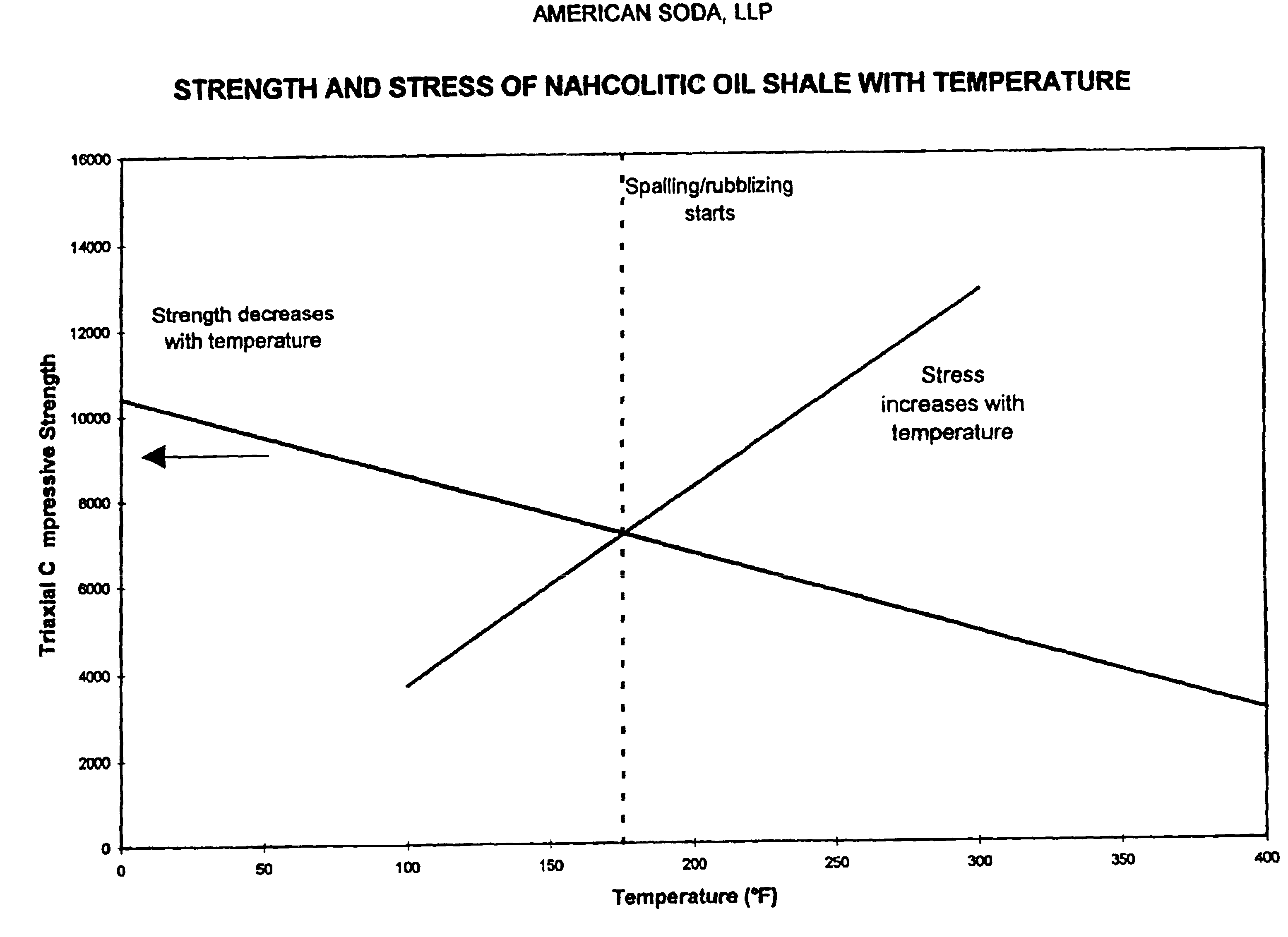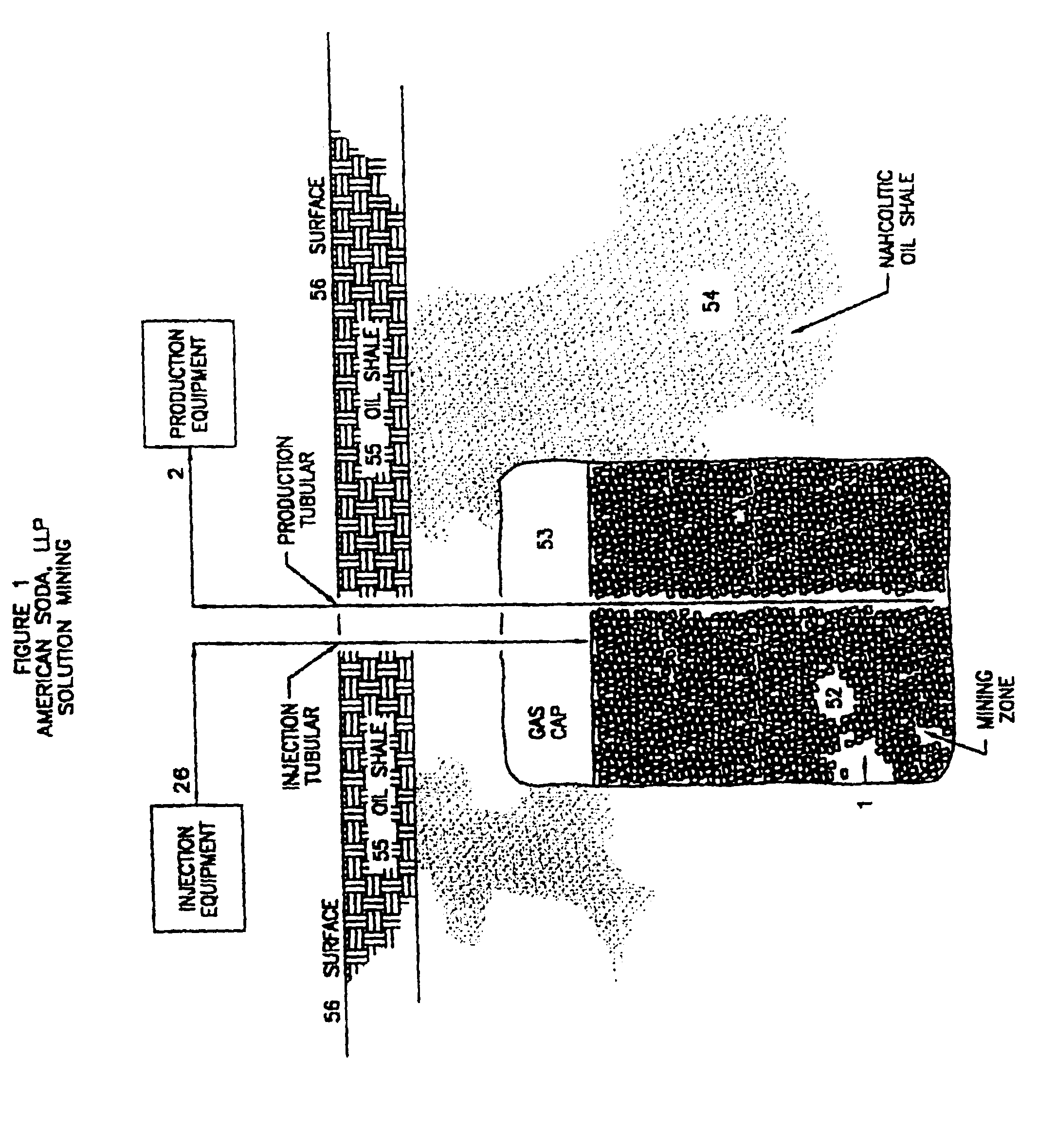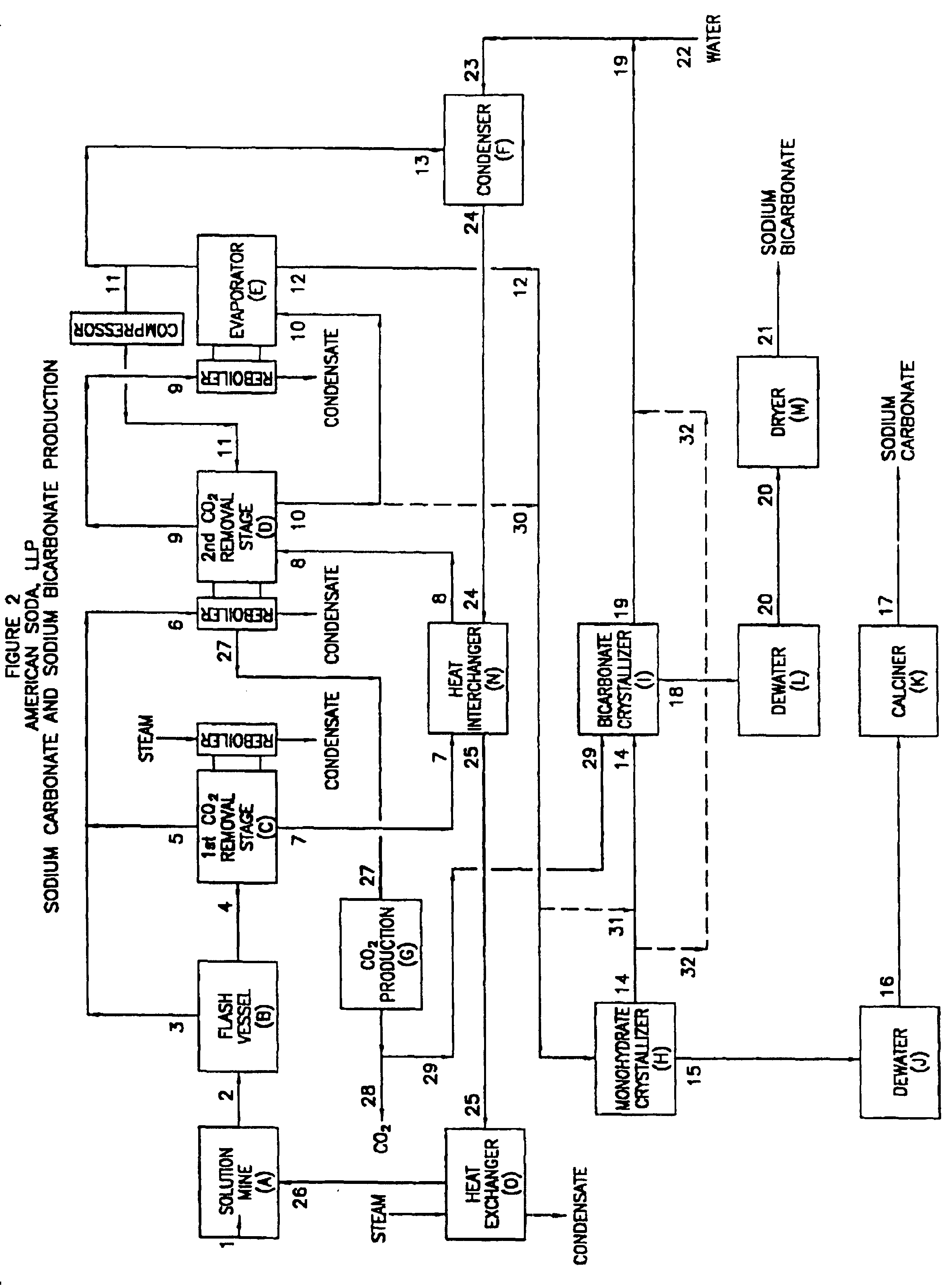Sodium carbonate and sodium bicarbonate production from nahcolitic oil shale
a technology of sodium bicarbonate and oil shale, which is applied in the direction of alkali metal carbonates, well accessories, insulation, etc., can solve the problems of too much fracture of oil shale formation, insufficient process, and inability to meet the requirements of the oil shale formation, so as to reduce the compressive strength increase the stress of the host rock, and increase the temperature
- Summary
- Abstract
- Description
- Claims
- Application Information
AI Technical Summary
Benefits of technology
Problems solved by technology
Method used
Image
Examples
example 1
This Example Illustrates the High Temperature Solution Mining of Nahcolite
The techniques described herein are utilized effectively in the solution mining of nahcolite from the nahcolitic oil shale deposits in the Piceance Creek Basin of western Colorado. These deposits, for the most part, consist of lenses and nodules of nahcolite contained within an oil shale host rock. The nahcolite content of this portion of the deposit is 18% to 40%. There are also several, nominally-horizontal beds of varying thickness of nahcolite within the deposit.
A well is drilled into a nahcolitic oil shale, as shown in FIG. 3E, with the mining zone extending from 1647 feet below the ground surface (where injection solution is inserted into the formation) to 2202 feet (where the production solution is recovered), i.e., a vertical separation of 555 feet. The average nahcolite concentration over the mining zone is 22%, of which, 91.2% is contained in nodules within the oil shale and 8.8% is contained in beds...
example 2
This Example Illustrates the Recovery Process Shown in FIG. 2
In this example, 767 tph of production solution (2) is recovered from the solution mining wellfield containing thirteen wells at 300° F. and 300 psia. With proper wellfield management, this solution contains at least 192 tph of sodium bicarbonate (bicarb). The sodium carbonate content is a function of the sodium carbonate in the injection solution less the quantity in the solution retained in the solution mined zone. In this example, the sodium carbonate content is 13 tph.
The production solution is fed to the flash vessel (B) operating at 90 psia pressure. Quantities of solution (4) and vapor (3) from this vessel are as shown in the following table.
Solution (4) from the flash vessel is fed to a first stream stripping column (C) which is also operated at 90 psia. Steam from the column reboiler is utilized to decompose a portion of the bicarb and then to strip the resulting carbon dioxide. Saturated steam, at 350 psig and am...
PUM
| Property | Measurement | Unit |
|---|---|---|
| temperature | aaaaa | aaaaa |
| equilibrium temperature | aaaaa | aaaaa |
| temperature | aaaaa | aaaaa |
Abstract
Description
Claims
Application Information
 Login to View More
Login to View More - R&D
- Intellectual Property
- Life Sciences
- Materials
- Tech Scout
- Unparalleled Data Quality
- Higher Quality Content
- 60% Fewer Hallucinations
Browse by: Latest US Patents, China's latest patents, Technical Efficacy Thesaurus, Application Domain, Technology Topic, Popular Technical Reports.
© 2025 PatSnap. All rights reserved.Legal|Privacy policy|Modern Slavery Act Transparency Statement|Sitemap|About US| Contact US: help@patsnap.com



